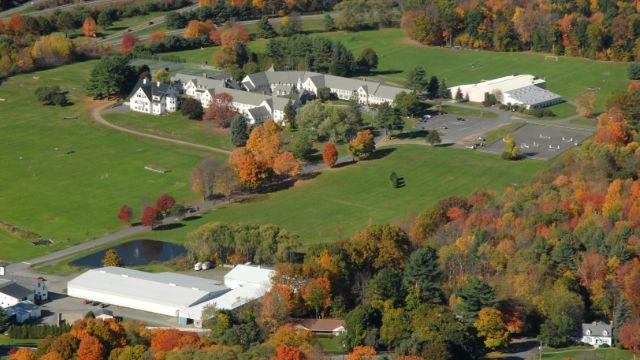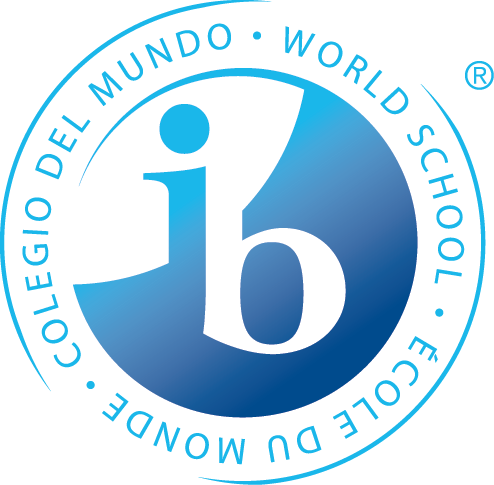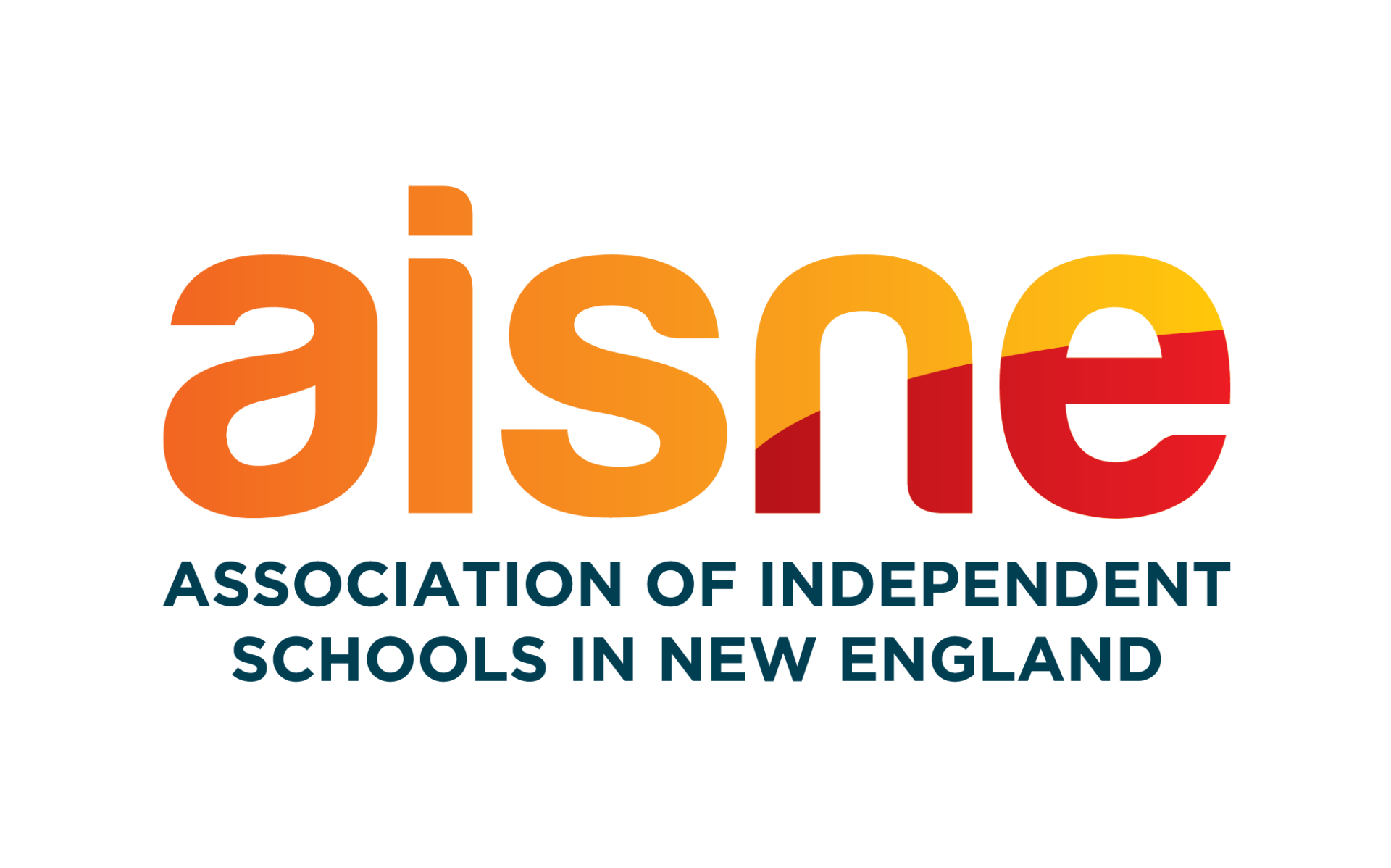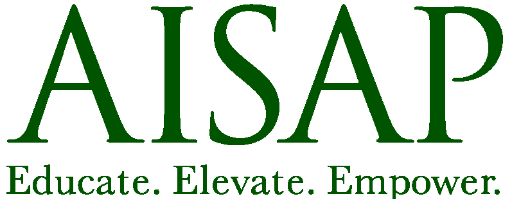- Welcome
- Academics
- Admissions
- Alumnae, Advancement & Giving
- Family Resources
- Health & Wellness
- Athletics & Equestrian
- Debate & Public Speaking
- Performing & Visual Arts
- Summer Programs
- Commencement
- Live Stream
- Reunion 2025
Stoneleigh-Burnham was the first girls’ boarding school in New England to offer the International Baccalaureate (IB) Diploma Programme.
The International Baccalaureate (IB) curriculum encourages students to think and to draw connections across disciplines of study. The IB curriculum is like no other in preparing students to succeed in our globalized and interconnected 21st century society. IB students are critical thinkers, and they approach learning with a sense of international-mindedness. Designed in 1968, the IB has gained wide recognition from the world’s leading universities.
The IB programme increases understanding of languages and cultures and explores globally significant ideas and issues in each subject area. Subjects are not taught in isolation. IB classes are interdisciplinary and connect learning across the curriculum. The IB programme is a liberal arts approach to education. Students must study two languages, math, science, individuals and societies, and the arts.
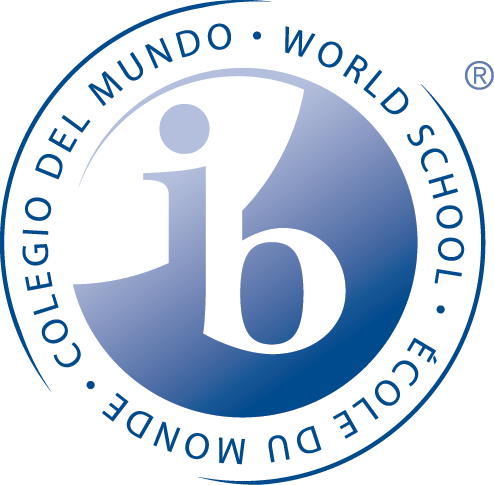
IB Information
The IB programme is not solely about academics, but also challenges students to enhance their personal growth. IB students often indicate that they have gained excellent time management skills and other critical attitudes needed for academic and personal success.
Students at Stoneleigh-Burnham School in grades 11th and 12th grade will take IB courses, but they have three options in how they will engage with the IB curriculum:
- Students may pursue the full IB Diploma Programme.
- Students may take IB courses for IB certificate credit without being enrolled in the full diploma programme.
- Students may take IB courses, but can choose not to take the IB exam and will thus only earn Stoneleigh-Burnham School credit for the course.
| Groups | Subject Areas |
|---|---|
| Group 1 | Language A: English |
| Group 2 | Language B: French, Spanish |
| Group 3 | Individuals and Societies |
| Group 4 | Sciences |
| Group 5 | Mathematics |
| Group 6 | Arts |
IB Frequently Asked Questions
Q: Can anyone take part in the International Baccalaureate (IB) Diploma Program?
A: Yes. All students are welcome!
Q: When can a student start the IB?
A: The IB courses are taken over two years – during 11th and 12th grade. However, in order to be prepared to take the academically challenging courses, it is important that students begin to plan their academic path early.
Q: Do students receive an SBS diploma as well?
A: Yes. After successfully completing all requirements of the IB organization, IB Diploma Programme students will have earned an IB Diploma and after successfully completing all Stoneleigh-Burnham requirements, these students will also have earned an SBS diploma. We have structured our course of study to allow students to pursue both diplomas successfully within the traditional 4-year high school experience.
Q: Can a student take just IB courses and not take part in the full IB Diploma Programme?
A: Yes. A student can enroll in an individual IB course and pursue an IB certificate by successfully completing all assessments.
Q: What are the IB assessments? When are they taken?
A: Students take written examinations in May of their 12th grade year, which are marked by external IB examiners. Students also complete assignments, science, labs, oral examinations, performances, and projects during their junior and senior years, which are either initially marked by SBS teachers and then moderated by external IB moderators or sent directly to external IB examiners.
Q: How many courses do I have to take to get the IB Diploma?
A: Six courses are required in addition to completion of the Extended Essay (EE), Theory of Knowledge (TOK), and Creativity, Activity, Service (CAS). At least three, and no more than four, courses need to be taken at the higher level (HL). The remaining courses are taken at the standard level (SL).
Q: How much does it cost?
A: Each subject costs $119. SBS provides financial support so that no student should let the cost prohibit her attempting certificates or the full diploma programme.
Q: How are SBS IB students prepared for college?
A: IB gives students a more seamless transition to higher education. Further, an IB diploma stands out because a student has had in-depth study in all types of subjects, not just the ones in which a student is “strong.” Students graduate with skills in time management, research, and public speaking.
Q: How does the IB Diploma Programme compare to the College Board’s Advanced Placement (AP)?
A: The IB has become a preferred curriculum for many post-secondary institutions because of its similarities to university level learning and teaching methodologies. The IB programme is accepted in countries outside the US, especially in Europe.
| IB Diploma Program | Advanced Placement | |||
|---|---|---|---|---|
| International academic standards | U.S. academic standards | |||
| Exams are externally evaluated by an international group of educators | Exams are scored by a US organization | |||
| Teachers are evaluated, monitored and provided with feedback | No feedback to teachers other than student test results | |||
| IB teachers are required to participate in intensive training to be certified to teach the IB and are required to participate in on-going professional development | Though encouraged, AP teachers are not required to receive training to teach AP classes | |||
| IB courses emphasize interdisciplinary thought and exploration | AP courses are taught in isolation of one another | |||
| Students are assessed in multiple ways within their course work and with summative exams | Exams are only requirement | |||
| The full IB diploma requires CAS (Creativity, Activity, Service), an Extended Essay and Theory of Knowledge (TOK) course | No concurrency of learning | |||
| Upon successful completion of the programme, a diploma is issued which is recognized internationally | Upon completion of AP coursework, no diploma is issued | |||
IB Learner Profile
The aim of the IB is to develop internationally minded people who, recognizing their common humanity and shared guardianship of the planet, help to create a better and more peaceful world.
IB learners strive to be:
- Inquirers: We nurture our curiosity, developing skills for inquiry and research. We know how to learn independently and with others. We learn with enthusiasm and sustain our love of learning throughout life.
- Knowledgeable: We develop and use conceptual understanding, exploring knowledge across a range of disciplines. We engage with issues and ideas that have local and global significance.
- Thinkers: We use critical and creative thinking skills to analyze and take responsible action on complex problems. We exercise initiative in making reasoned, ethical decisions.
- Communicators: We express ourselves confidently and creatively in more than one language and in many ways. We collaborate effectively, listening carefully to the perspectives of other individuals and groups.
- Principled: We act with integrity and honesty, with a strong sense of fairness and justice, and with respect for the dignity and rights of people everywhere. We take responsibility for our actions and their consequences.
- Open-minded: We critically appreciate our own cultures and personal histories, as well as the values and traditions of others. We seek and evaluate a range of points of view, and we are willing to grow from the experience.
- Caring: We show empathy, compassion and respect. We have a commitment to service, and we act to make a positive difference in the lives of others and in the world around us.
- Risk-takers: We approach uncertainty with forethought and determination; we work independently and cooperatively to explore new ideas and innovative strategies. We are resourceful and resilient in the face of challenges and change.
- Balanced: We understand the importance of balancing different aspects of our lives—intellectual, physical, and emotional—to achieve well-being for ourselves and others. We recognize our interdependence with other people and with the world in which we live.
- Reflective: We thoughtfully consider the world and our own ideas and experience. We work to understand our strengths and weaknesses in order to support our learning and personal development.
IB Curriculum
Designed as a two-year curriculum (taken during 11th and 12th grade), candidates take one course in each of the six different subject areas.
| Groups | Subject Areas |
|---|---|
| Group 1 | English |
| Group 2 | French, Spanish |
| Group 3 | History |
| Group 4 | Environmental Systems & Societies |
| Group 5 | Math |
| Group 6 | Visual Arts, Music, Dance |
The IB diploma programme also mandates the completion of three core elements central to the philosophy of the IB curriculum:
- Theory of Knowledge (TOK), designed to explore the nature of knowledge across disciplines, encouraging an appreciation of diverse cultural perspectives.
- Extended Essay (EE), offering the opportunity to investigate a topic of individual interest, and acquainting students with the independent research and writing skills expected at the collegiate level.
- Creativity, Activity, Service (CAS), encouraging students to be involved in artistic pursuits, sports and community service work, thus fostering students’ awareness and appreciation of life outside the academic arena.
The IB diploma is awarded following successful completion of six courses plus the Core. External examiners will assess individual student performance. This evaluation is based on final year examinations as well as internal assessments completed over the two years.
The IB Diploma Programme
Parent FAQs

